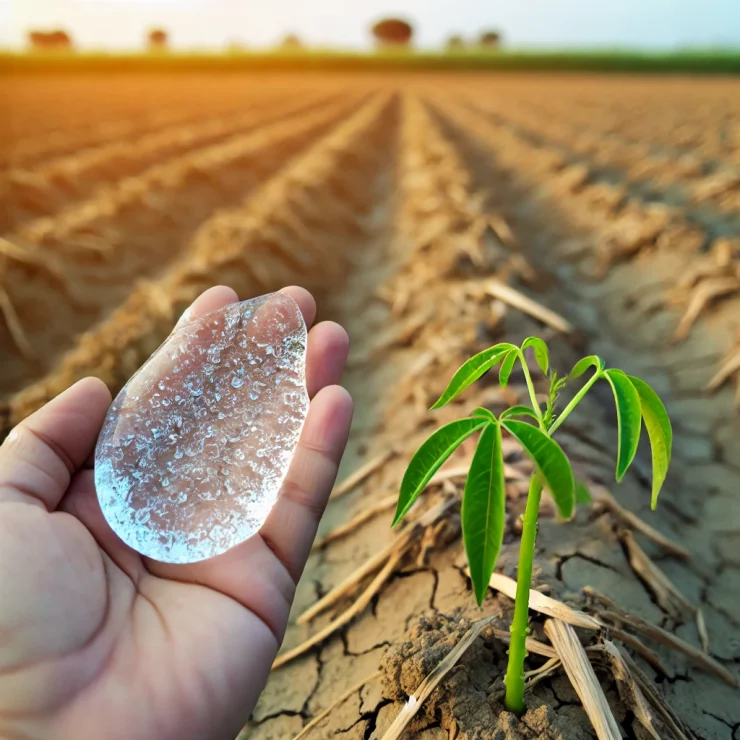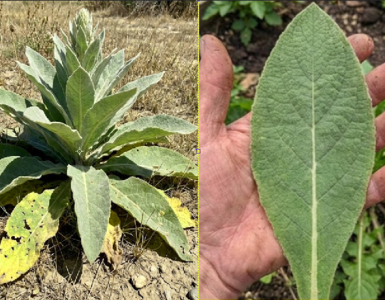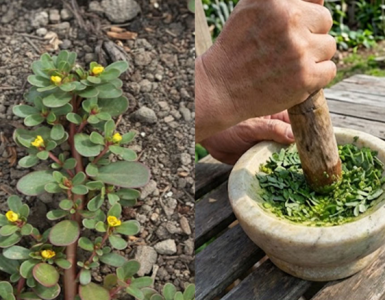The innovation by Mexican engineer Sergio Jesús Rico Velasco, which uses potassium acrylate to transform rainwater into a gel-like, solid resource, has garnered attention for its potential to revolutionize water management in agriculture, especially in arid and drought-prone regions. While promising, the technology raises important questions about its long-term environmental impact, cost-effectiveness, and scalability.
Potential Benefits:
- Enhanced Water Retention in Drought-Prone Areas:
Potassium acrylate can hold up to 210 times its weight in water, making it invaluable in regions with limited and unpredictable rainfall. This water-holding gel can help stabilize crop growth by releasing moisture gradually, creating a more resilient agricultural system in extreme climates. - Reduced Water Usage and Cost Savings:
Rico’s claim that this method could reduce water usage by up to 92% is significant, as agriculture is one of the most water-intensive industries globally. Reducing water needs could lower costs and allow farmers to sustain crop growth in areas with scarce water sources, benefiting economies that rely heavily on agriculture. - Biodegradability and Environmental Impact:
One of the notable features of potassium acrylate is its biodegradable nature, which means it can decompose without harming the environment, unlike some synthetic polymers that contribute to soil degradation and pollution.
Challenges and Considerations:
- Long-Term Environmental Impact and Soil Health:
While potassium acrylate is touted as biodegradable, it’s essential to understand how its repeated use affects soil health over time. The gel’s breakdown products could potentially alter soil composition or interact with other agricultural inputs, impacting nutrient cycles and microbial life. Research into these effects would be crucial to ensure that its use doesn’t compromise soil quality. - Cost and Accessibility for Farmers:
Although potassium acrylate may reduce water costs, the initial cost of the polymer itself could be prohibitive for small-scale farmers, especially in developing regions. For this technology to be widely adopted, it would need to be affordable and accessible. Government subsidies or agricultural grants may be necessary to make this a viable solution for resource-constrained farmers. - Impact on Local Water Systems and Sustainability:
By capturing rainwater in gel form, there’s a potential risk of disrupting local water cycles, especially in regions where rainwater runoff contributes to natural water bodies or groundwater recharge. If potassium acrylate becomes widely used, it may alter the availability of water for other ecosystems, raising concerns about sustainability and environmental balance. - Scalability and Infrastructure:
Implementing potassium acrylate technology at scale would require a robust supply chain, regulatory frameworks, and farmer education. For large agricultural regions, consistent application methods and long-term monitoring would be necessary to optimize benefits and minimize unintended consequences. This infrastructure could be challenging to establish, particularly in remote or underdeveloped areas. - Alternative Technologies and Solutions:
Potassium acrylate is not the only solution to water scarcity in agriculture. Alternatives, like drip irrigation, mulching, and drought-resistant crop varieties, offer complementary or even competitive benefits. A comprehensive assessment comparing the effectiveness, cost, and environmental impact of potassium acrylate with these alternatives could help farmers make informed decisions.
The use of potassium acrylate to retain water for agriculture is an exciting advancement with the potential to transform water management practices in arid regions. However, its long-term environmental impact, cost, and scalability must be carefully considered. Further research and pilot programs could help determine the most effective ways to implement this technology while addressing potential risks. If managed thoughtfully, potassium acrylate could become a valuable tool in sustainable agriculture, supporting crop growth, reducing water dependence, and fostering resilience against climate change.






Add comment